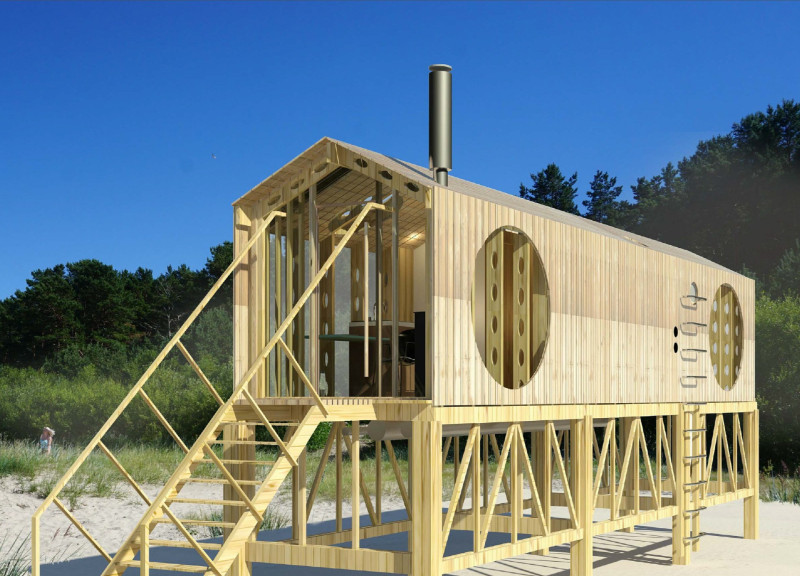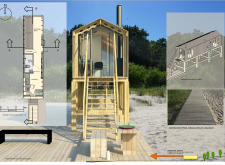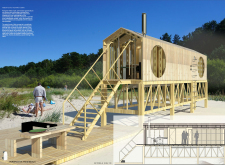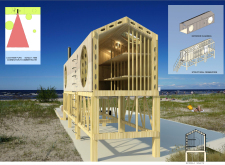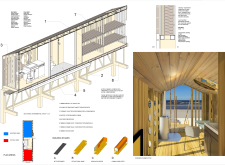5 key facts about this project
### Project Overview
Located along the Amber Route in Latvia, the Amber Route Trekking Cabins project aims to integrate modern living with the surrounding coastal landscape while prioritizing environmental sustainability. The design is focused on creating a functional retreat that enhances the user experience through a direct connection with nature, rather than serving as a conventional lodging facility.
### Architectural Form and Spatial Strategy
The cabins are elevated on stilts, which not only accommodates potential flood conditions but also allows for unobstructed views of both the beach and forest. This elevation fosters a visual relationship with the landscape, and the structure employs a contemporary interpretation of traditional forms, featuring angular roofs and large circular windows that welcome natural light into the interiors. The layout is meticulously organized to optimize space, with clearly defined areas for sleeping, cooking, dining, and storage, promoting an efficient flow throughout the cabin.
### Material Selection and Sustainability
The project emphasizes sustainability by utilizing locally sourced materials that resonate with the natural environment. The primary structure is composed of sustainably sourced timber, both in the framework and cladding, which will weather naturally over time. Metal components, such as galvanized steel railings, offer durability against coastal weather. Additionally, the use of high-performance glazing in the windows maximizes natural light while providing thermal insulation. The design incorporates eco-friendly construction practices, including enhanced insulation and passive solar design principles, that contribute to the overall energy efficiency of the cabins.
The use of modular construction methods allows for efficient assembly and the potential for relocation, minimizing on-site waste and further aligning the project with sustainable practices. Each cabin's design encourages occupants to engage with the surrounding environment, creating a tranquil atmosphere that harmonizes human activity with nature.


